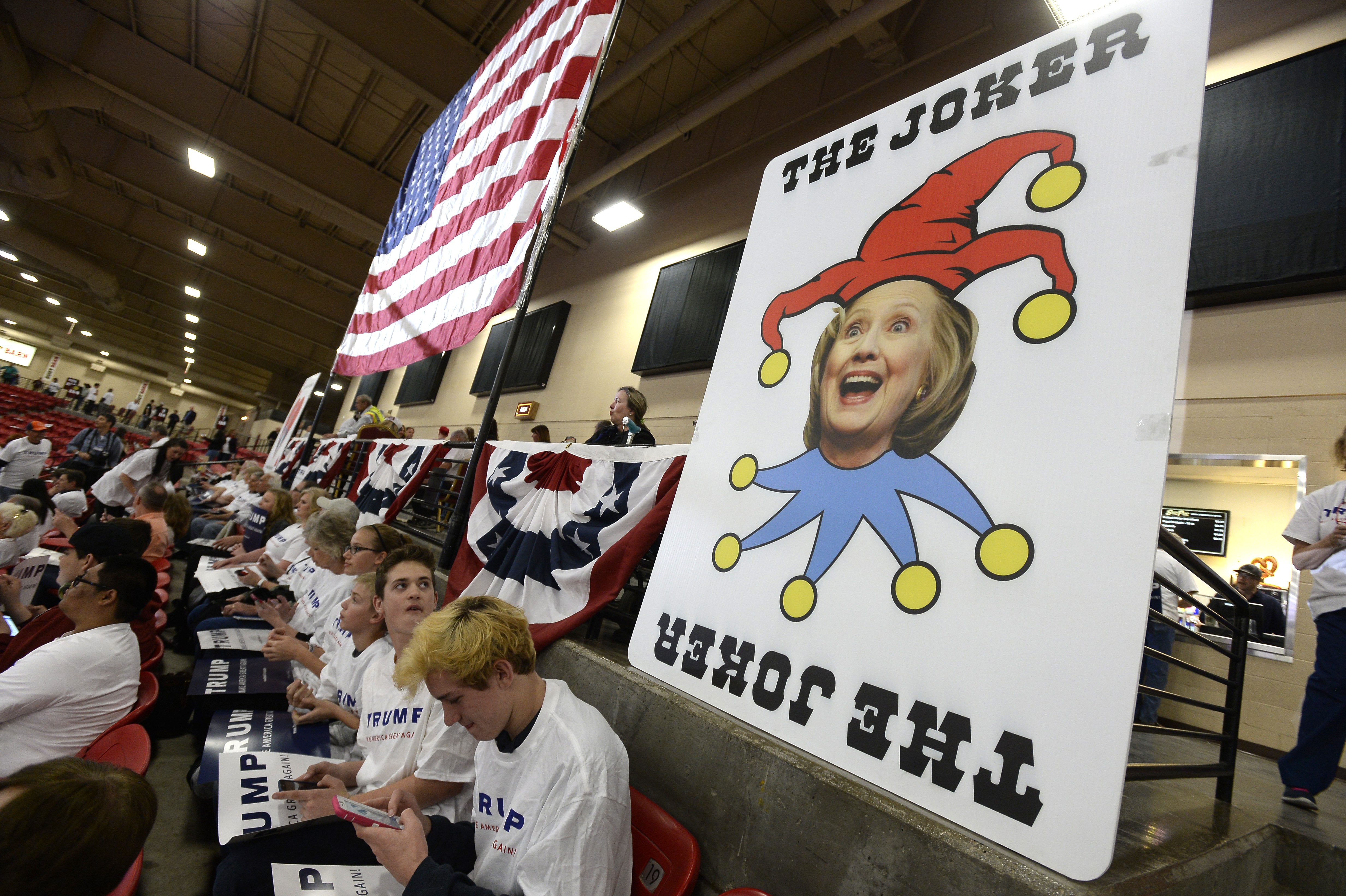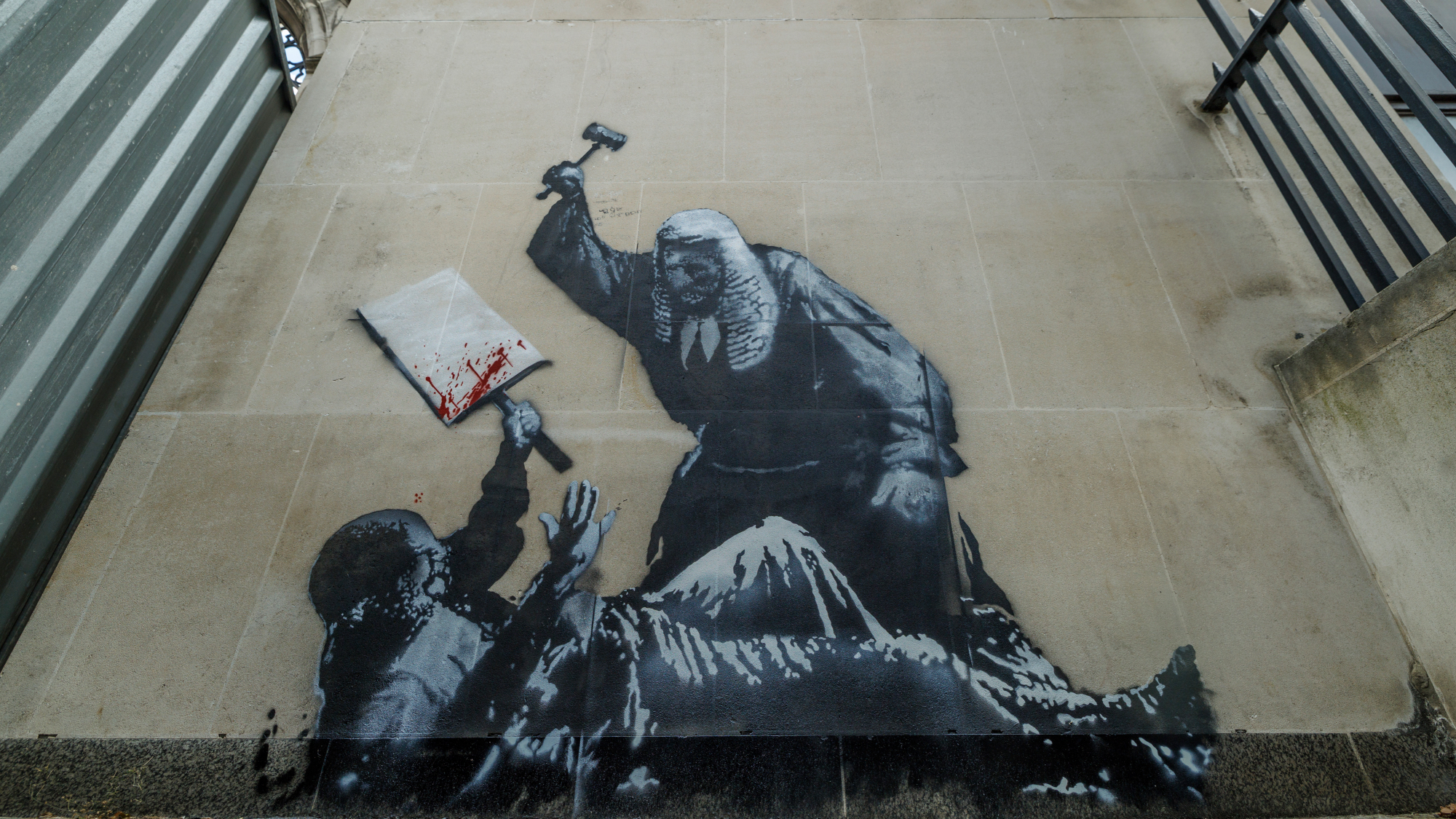The dangerous delegitimizing of the American presidency
Every 2016 candidate faces attacks on his or her very right to be president. This has to stop.


The 2016 presidential election is still more than six months away. Inauguration day is nine months from now. Despite Donald Trump and Hillary Clinton's hefty delegate leads, neither party nominee has been formally determined yet. And yet, already, the race to delegitimize our next president has begun.
American presidential politics have always been dirty. (Way back in 1800, Thomas Jefferson's allies waged a whisper campaign suggesting his rival, John Adams, was a hermaphrodite.) But for the last eight years, something else has been happening that goes beyond the normal mud-slinging: Republicans in Congress and conservative commentators outside it have been unusually dismissive of and obdurate toward President Obama, appearing unwilling to fully accept his legitimacy as commander-in-chief. And remember, Obama beat Sen. John McCain (R-Ariz.) in 2008 by almost 10 million votes, 7 percentage points, and 192 electoral votes. (Compare that to the way George W. Bush won the presidency by Supreme Court fiat in 2000.)
Even before the 2008 election, the effort to disqualify Obama — literally — had begun with the "birther" movement to try and prove he wasn't a natural-born citizen. Obama released his short- and long-form Hawaii birth certificates, but a good chunk of the population remains unconvinced. As recently as September 2015, a CNN/ORC poll found that 20 percent of Americans either doubted our 44th president was born in the U.S., or believed there to be "solid evidence" definitively proving he was not.
The Week
Escape your echo chamber. Get the facts behind the news, plus analysis from multiple perspectives.

Sign up for The Week's Free Newsletters
From our morning news briefing to a weekly Good News Newsletter, get the best of The Week delivered directly to your inbox.
From our morning news briefing to a weekly Good News Newsletter, get the best of The Week delivered directly to your inbox.
Republicans in Congress may not be full-blown birthers, but for whatever reason, they have continued to treat Obama as if he isn't truly president. This is stifling the basic functioning of government, as demonstrated most recently by Republicans' refusal to even hold a hearing on Obama's nominee to the Supreme Court. They're not even going through the motions anymore.
We're already seeing signs that similar legitimacy doubts will plague whoever next occupies the Oval Office. Every candidate has some form of disqualifying knock: Bernie Sanders is too old, or not a real Democrat; Ted Cruz is a natural-born Canadian (though his mom is an American citizen, so he won the legal challenges to his eligibility). But most of the barbs have been aimed at the frontrunners, Hillary Clinton and Donald Trump.
Trump has been widely denounced as a bully, a blowhard, and a bigot, but none of those are automatic disqualifiers for the White House — and in fact, some Trump supporters see them as selling points. Charges of fascism, however, are more serious. As divided as America is in 2016, pretty much everyone agrees that Adolf Hitler, Benito Mussolini, and Francisco Franco were terrible leaders and/or straight-up evil.
The Trump campaign has dabbled in playing the Hitler card against opponents, accusing the Cruz team of using "Gestapo tactics" to win delegates, but more frequently, it's Trump on the receiving end. On Sunday, for example, conservative billionaire Charles Koch told ABC News' Jonathan Karl that Trump's proposal to ban all Muslims from entering the U.S. is "reminiscent of Nazi Germany."
A free daily email with the biggest news stories of the day – and the best features from TheWeek.com
While Trump is being painted as a proto-fascist, Clinton is taking fire from all sides. As Clinton herself not infrequently points out, she has faced searing attacks from Republicans for some 25 years. And among Democrats, Clinton has been criticized for voting to authorize the 2003 war in Iraq since about the day she cast that vote in 2002. That vote likely cost her the nomination to Obama in 2008, and Sanders recently used it (along with her acceptance of help from super PACs and her paid speaking engagements to Wall Street banks) as one of his arguments for why she is unqualified to be president in 2016.
Sanders has since dialed back his attacks on Clinton's qualifications, but has taken up questioning the legitimacy of the New York primary, as well as Clinton's big wins in the South. Vox's Ezra Klein calls this "arguably, a smart move for Sanders" but also "a cynical and perhaps dangerous" one. Convincing his supporters that the Democratic primary rules "are illegitimate is going to make the campaign much more bitter, and reconciliation between the two camps much less likely," he adds. "It's one thing, after all, to see your candidate lose. It's another to see the election stolen, and that's increasingly how Sanders supporters are understanding the race." Trump and his supporters are sounding similar notes about the legitimacy of the Republican race.
This is a worrisome trend for the country. Our system of representative democracy rests on the idea that whoever wins the most electoral college votes — and, hopefully, the greatest number of popular votes, too — is president. And barring death or treason or other "high crimes or misdemeanors," that person is president until the next lawfully elected president is sworn in.
Every past president has had his faults, and ideally, voters were are aware of the most egregious before he was elected. It's hard to imagine voters won't know what they are getting with Trump and Clinton — or Sanders or Cruz, if there's a big upset. So while we are still in the electoral hypnagogia where any voter's preferred candidate can still win, let's agree that whoever gets at least 270 electoral votes — whether or not they're your preferred candidate — is indeed the 45th president, entitled to the same rights and responsibilities as the 44 presidents who came before.
Peter has worked as a news and culture writer and editor at The Week since the site's launch in 2008. He covers politics, world affairs, religion and cultural currents. His journalism career began as a copy editor at a financial newswire and has included editorial positions at The New York Times Magazine, Facts on File, and Oregon State University.
-
 Bari Weiss’ ‘60 Minutes’ scandal is about more than one report
Bari Weiss’ ‘60 Minutes’ scandal is about more than one reportIN THE SPOTLIGHT By blocking an approved segment on a controversial prison holding US deportees in El Salvador, the editor-in-chief of CBS News has become the main story
-
 Has Zohran Mamdani shown the Democrats how to win again?
Has Zohran Mamdani shown the Democrats how to win again?Today’s Big Question New York City mayoral election touted as victory for left-wing populists but moderate centrist wins elsewhere present more complex path for Democratic Party
-
 Millions turn out for anti-Trump ‘No Kings’ rallies
Millions turn out for anti-Trump ‘No Kings’ ralliesSpeed Read An estimated 7 million people participated, 2 million more than at the first ‘No Kings’ protest in June
-
 Ghislaine Maxwell: angling for a Trump pardon
Ghislaine Maxwell: angling for a Trump pardonTalking Point Convicted sex trafficker's testimony could shed new light on president's links to Jeffrey Epstein
-
 The last words and final moments of 40 presidents
The last words and final moments of 40 presidentsThe Explainer Some are eloquent quotes worthy of the holders of the highest office in the nation, and others... aren't
-
 The JFK files: the truth at last?
The JFK files: the truth at last?In The Spotlight More than 64,000 previously classified documents relating the 1963 assassination of John F. Kennedy have been released by the Trump administration
-
 'Seriously, not literally': how should the world take Donald Trump?
'Seriously, not literally': how should the world take Donald Trump?Today's big question White House rhetoric and reality look likely to become increasingly blurred
-
 Will Trump's 'madman' strategy pay off?
Will Trump's 'madman' strategy pay off?Today's Big Question Incoming US president likes to seem unpredictable but, this time round, world leaders could be wise to his playbook



